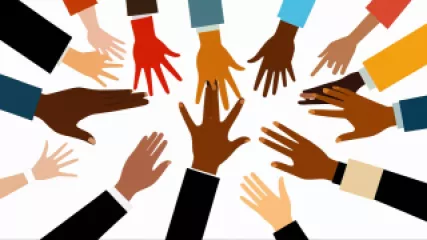Confronting Bias: A Research Summary
Confronting Bias: A Research Summary
Bias, the often unconscious tendency to favor one group or individual over another, is a pervasive issue in our society. It can manifest in various forms, from subtle microaggressions to overt discrimination, and can have far-reaching consequences on individuals, organizations, and communities. In this comprehensive research summary, we'll explore the nature of bias, its impact, and effective strategies for confronting and overcoming it.
Understanding Bias: Types and Causes
Bias can take many forms, each with its own unique characteristics and underlying causes. Cognitive biases, such as confirmation bias and the halo effect, are the result of our brain's tendency to process information in a way that aligns with our preexisting beliefs and assumptions. Implicit biases, on the other hand, are unconscious attitudes or stereotypes that influence our actions and decisions without our conscious awareness. Explicit biases, in contrast, are conscious prejudices and discriminatory beliefs that individuals openly endorse.
The roots of bias can be traced back to various factors, including socialization, personal experiences, and the broader cultural and historical context. Stereotypes and prejudices, for example, are often deeply ingrained in our social fabric, passed down from generation to generation and reinforced by media and other societal influences. Perceived threats, whether real or imagined, can also trigger defensive reactions and amplify biases. Moreover, the human tendency to favor in-groups and denigrate out-groups can contribute to the perpetuation of bias.
The Impact of Bias: Individual, Organizational, and Societal Consequences
Bias can have far-reaching consequences, affecting individuals, organizations, and society as a whole. At the individual level, bias can lead to feelings of exclusion, marginalization, and decreased self-esteem, as well as limiting opportunities and undermining personal and professional development. In the organizational context, bias can result in unfair hiring and promotion practices, ineffective decision-making, and a lack of diversity and inclusion, ultimately hindering innovation and productivity.
On a societal scale, bias can contribute to systemic inequalities, social unrest, and the perpetuation of oppressive structures. It can also limit access to resources and opportunities for marginalized groups, further exacerbating existing disparities and undermining the principles of fairness and social justice.
Confronting Bias: Strategies and Approaches
Confronting bias is a multifaceted challenge that requires a comprehensive and sustained effort. Effective strategies for addressing bias include:
Increasing Awareness and Acknowledging Bias
The first step in confronting bias is to recognize its existence and acknowledge our own biases. This involves engaging in self-reflection, seeking feedback from others, and exploring our personal experiences and socialization that have shaped our biases. Bias awareness training and implicit bias assessments can be valuable tools in this process.
Challenging Stereotypes and Prejudices
Actively challenging stereotypes and prejudices, both within ourselves and in our social environments, is crucial for dismantling bias. This can involve seeking out diverse perspectives, exposing ourselves to counter-stereotypical information, and engaging in critical discussions about the origins and consequences of bias.
Fostering Empathy and Perspective-Taking
Cultivating empathy and the ability to consider different viewpoints and experiences can help reduce biases and promote more inclusive and equitable attitudes. Intergroup contact, perspective-taking exercises, and storytelling can be effective in this regard.
Implementing Inclusive Policies and Practices
At the organizational and institutional levels, adopting inclusive policies, procedures, and practices can help mitigate the effects of bias and create more equitable environments. This may include bias-aware hiring and promotion processes, diversity and inclusion training, and the establishment of employee resource groups.
Fostering a Culture of Accountability and Allyship
Developing a culture of accountability, where individuals and organizations are held responsible for addressing and correcting biases, is crucial for sustained progress. Additionally, cultivating allyship, where individuals from dominant or privileged groups actively support and advocate for marginalized groups, can be a powerful force in confronting bias.
Confronting Bias in Research and Academia
The research and academic community plays a crucial role in confronting bias, both within its own practices and in the broader societal context. Strategies for addressing bias in research and academia include:
Diversifying Research Teams and Participants
Ensuring diversity and representation in research teams and participant pools can help mitigate the influence of bias in study design, data collection, and interpretation. This can involve targeted recruitment efforts, mentorship programs, and the inclusion of marginalized voices.
Implementing Inclusive and Transparent Peer Review Processes
Adopting inclusive and transparent peer review processes, such as double-blind review, can help reduce the potential for biases to influence the evaluation of research proposals and publications. Providing clear guidelines and training for reviewers can also contribute to more equitable assessment practices.
Promoting Bias-Aware Research Methodologies
Developing and championing research methodologies that are designed to identify and mitigate the influence of bias is crucial for advancing our understanding of bias and its impacts. This may include the use of mixed-methods approaches, intersectional analyses, and longitudinal studies.
Fostering a Culture of Bias Awareness and Accountability
Within the research and academic community, cultivating a culture of bias awareness, open dialogue, and accountability can help drive meaningful change. This can involve bias training for researchers and faculty, the establishment of bias review boards, and the integration of bias-related metrics in tenure and promotion processes.
The Road Ahead: Sustaining the Effort to Confront Bias
Confronting bias is a complex and ongoing challenge that requires a sustained, multi-pronged effort. While significant progress has been made in understanding and addressing bias, there is still much work to be done to create truly inclusive and equitable societies. Maintaining momentum, fostering collaboration, and continuously evaluating and refining our approaches will be crucial for achieving long-term, meaningful change.
By embracing a comprehensive, evidence-based approach to confronting bias, we can work towards a future where diversity, equity, and inclusion are not just aspirations, but the foundation upon which our communities, organizations, and institutions are built. Through sustained commitment, bold action, and a shared vision for a more just and equitable world, we can overcome the challenges of bias and create a society that celebrates and empowers all individuals.






